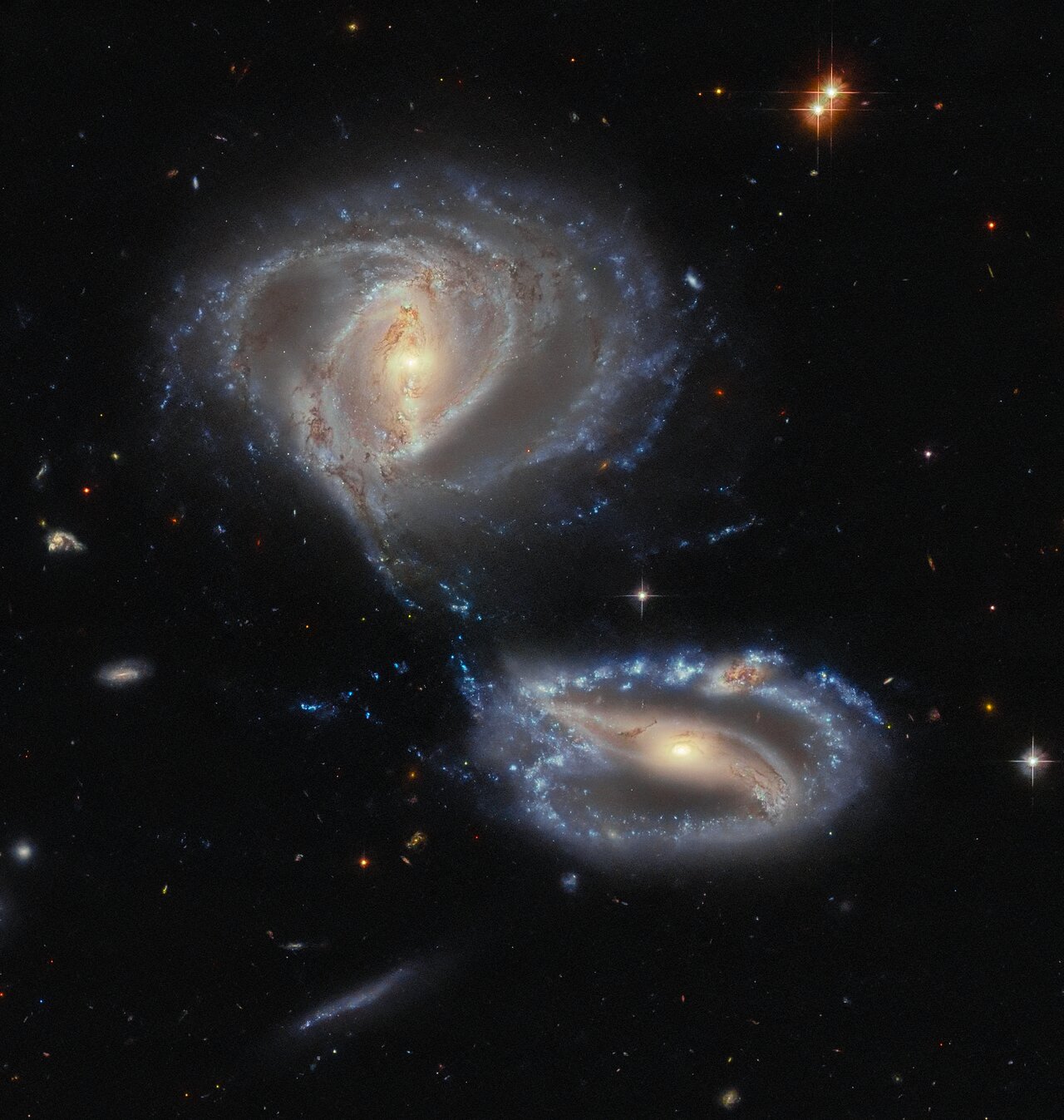Cosmos Arp-Madore 2339-661
This striking image captures the interacting galaxy pair known as Arp-Madore 2339-661, so named because they belong to the Arp-Madore catalogue of peculiar galaxies. However, this particular peculiarity might be even odder than first meets the eye, as there are in fact three galaxies interacting here, not just two. The two clearly defined galaxies are NGC 7733 (smaller, lower right) and NGC 7734 (larger, upper left). The third galaxy is currently referred to as NGC 7733N, and can actually be spotted in this picture if you look carefully at the upper arm of NGC 7733, where there is a visually notable knot-like structure, glowing with a different colour to the arm and obscured by dark dust. This could easily pass as part of NGC 7733, but analysis of the velocities (speed, but also considering direction) involved in the galaxy shows that this knot has a considerable additional redshift, meaning that it is very likely its own entity and not part of NGC 7733. This is actually one of the many challenges that observational astronomers face: working out whether an astronomical object really is just one, or one lying in front of another as seen from Earth’s perspective! All three galaxies lie quite close to each other, roughly 500 million light-years from Earth in the constellation Tucana, and, as this image shows, they are interacting gravitationally with one another. In fact, some science literature refers to them as a ‘merging group’, meaning that they are on a course to ultimately become a single entity. [Image Description: Two spiral galaxies. Each glows brightly in the centre, where a bar stretches from side to side. The upper one is more round and its arms form two thin rings. The lower galaxy is flatter and its arms make one outer ring; a dusty knot atop its upper arm marks out a third object. Gravity is pulling gas and dust together where the galaxies come close. A number of small galaxies surround them on a black background.]
